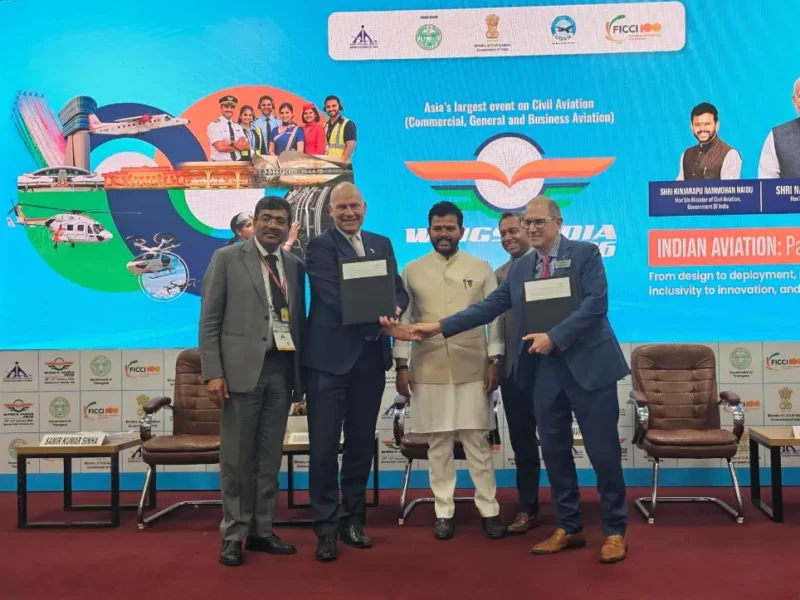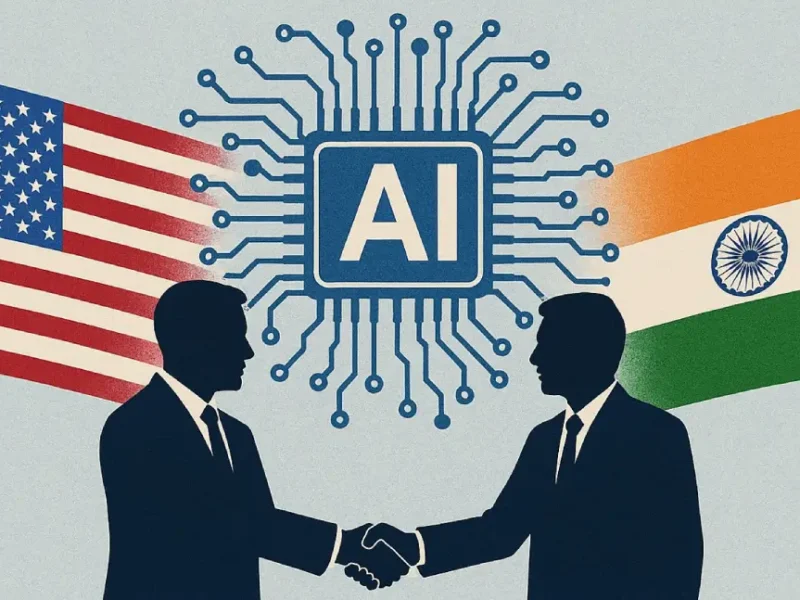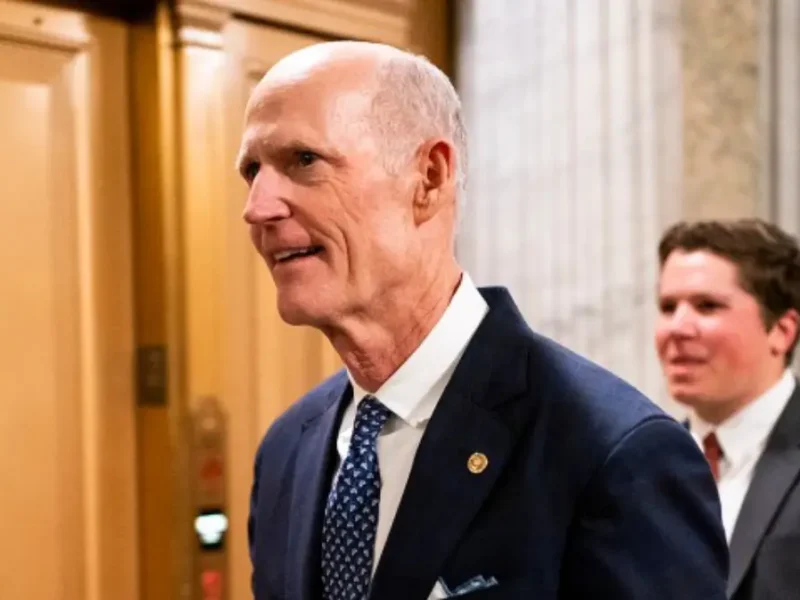
SoCal Company Leads Fight Against Plastic Plague With Hemp Bioplastics
The proprietary products include a range of strong and durable items such as plastic bags, straws, cups, and utensils.
By REENA RATHORE
INGLEWOOD, CA – As the world continues to find ways to beat plastic pollution that is contaminating the environment, new companies such as Terramer are ramping up production of bioplastics to curb its impact.
Established in 2019, the Southern California-headquartered technology company is seeking to relieve the pressure on the environment by developing an innovative and sustainable substitute for petroleum-based plastics. It has developed hemp-based polymers that are fully compostable within days to months leaving no trace of toxins or microplastics behind. And that’s what drew Ravi Bhatia, who works with startups in the advisory space and is principal/chief investment officer at Verano Capital Partners, to the company.
A chance meeting in August 2022 with Alex Mond, president and CEO of Terramer, and Karen Mond, chief financial officer, set in motion the beginning of a long-term relationship. He was soon welcomed to the company’s board of advisors and is now an integral part of the team, focusing on everything from capital and cross-border financing to joint venture collaboration. He also facilitated Terramer’s academic partnership with UCLA and UC Riverside.
“Terramer is revolutionizing the plastics industry. We are a cross between agriculture, ag tech, clean tech, consumer packaged goods, supply chain, manufacturing, and then anything to do with packaging, whether it’s food packaging or, cutlery, straws, plates, bags, you name it, they can do everything,” Bhatia told India-West. “They make the resin which is then used to make the plastics. The resin is made from hemp plants and other plants. So, we are 100 percent plant-based, like completely 100 percent plant-based.”
Terramer’s proprietary products include single-use plastic bags, straws, cups, and utensils, among others, which are strong and durable.
While their straws and cutlery are heat resistant, making them ideal for cold or hot beverages, they have created the world’s first hemp-derived film for grocery bags, trash bags, dog waste bags, etc., per the company. The lineup also features a flexible biodegradable film used for thermoforming containers, plates, and packaging.
With an extensive background in the Big 4 and Fortune 500 companies, Bhatia brought a wealth of knowledge and experience from business, corporate development, and strategy. Before launching his fund and pivoting to help companies scale their businesses, he graduated with a business economics degree and built a career in tech. He later pursued a management degree from the UCLA Anderson Executive MBA program.

He grew up in the San Francisco Bay Area and is passionate about the environment, sustainability, social impact, and impact investing and believes in giving back through his philanthropic efforts.
Describing himself as “sector agnostic,” Bhatia has helped several early-stage companies in the clean tech and consumer products space get off the ground and scale.
“I kind of bridge the gap between finance, investment banking, M&A, and strategy,” he explained.
His industry verticals, he said, are in technology, financial services, consumer/retail packaged goods, biotech/life sciences, health care delivery industries, automotive, cleantech/ environmental, social governance, real estate, aerospace, and defense.
Operational since 2021, Terramer has raised over $3 million, completed several rounds of research and development, filed 4 provisional patents, and recently received LOIs and POs from the likes of SoFi Stadium (buy-back program and corporate sponsorship), Taylor Nonwovens, and World Gym.
Revenues are “expected to be at least $25 million in 2023 – based on sales already recorded – but could reach $1 billion following discussions with numerous private and public sector customers, including Custom Pak and King Plastics,” per Bhatia, who also underscored that the company is applying for Renewable Identification Numbers and Low Carbon Fuel Standard credits.
Terramer’s products have piqued the interest of several companies, including fast-food giants McDonald’s and Burger King. Its state-of-the-art manufacturing facility is located in Illinois and is scheduled to be operational by 2024. In the meantime, it is collaborating with production facilities in Texas, Chicago, and Orange County, CA – with another one coming up in Guadalajara, Mexico – to create its products which are available for sale to customers, manufacturers, or distributors.
Terramer, which is going from Series A to Series B, is seeking to raise $10 million-plus and up to $30-$50 million over time in equity and/or debt, Bhatia stated.
“There’s a lot of capital, personnel, material as well as distribution costs. Once we get the capital, we can scale pretty fast because everything is already in place,” Bhatia noted. “And we’re also getting certification for BPI, which is a Bio Plastics Institute certificate that basically tells our customers that we are certified and have been approved to be a bioplastics vendor for them.”
Plastics, which constitute an important component of modern lives, are filling landfills at a staggering rate because recycling doesn’t always happen.
“Less than 10 percent of plastic is recycled so landfills are getting used up…We have more products and so more packaging is needed,” said Bhatia. “There’s Styrofoam packaging, plastic surround wrap… and none of that is biodegradable or reusable…Some of it goes to India, China, Africa, and other countries, but we don’t know where it ends up. Most likely it probably just gets burned…”
Another upside to moving away from plastics or their reduced usage, he said, is the potential for a reduction in healthcare and recycling costs as well as soil conversation.
“Anything that you heat that’s in a plastic container that plastic is also going into your food or beverage…and over time that ends up making our organs bad because we are basically poisoning ourselves,” he emphasized.
Bhatia pointed out that Terramer is committed to sustainability and reducing greenhouse gas emissions by focusing on carbon credits.
“The more CO2 we take out of the environment, the more oxygen we’ll have…Carbon credits are essentially where we are reducing the carbon footprint on the environment and we are increasing oxygen and cleaner air,” said Bhatia. “Those carbon credits we can use to offset when it comes to the government, as programs on the Environmental, Social, and Governance where carbon credits will give you more revenue. So as an investor, you look at every dollar you make on your product, and you get $3 worth of carbon credits. We’re planting more plants. We’re doing the more circular economy type of things…All those are pluses. Nothing has any risk to it. The risk is that if we don’t do it it’s going to hurt the environment. That’s the risk we’re taking by not doing it.”



